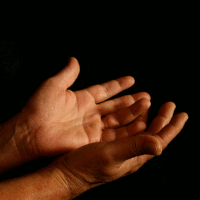

It’s Giving Week, where people come together to celebrate the spirit of giving. It is truly inspiring and humbling to see our fellow man donate their time and money to support causes that they believe in. We come together as a community and show how much we care about each other, and our compassion is celebrated.
And yet, this week comes less than a month after San Francisco voters came together and decided to give $300M to help the homeless and $40M to aid arts and cultural institutions in the City. The difference, of course, is that the latter is not “giving” so much as it is taking and redistributing. Proposition C was lauded as a compassionate measure to help the homeless in our City, but can it be real compassion when backed by the threat of force?
As Libertarians, we oppose the use of coercion to achieve political and social goals. While we can agree that a problem exists (people are homeless), Libertarians don’t consider it compassionate at all to force your neighbor to pay to solve the problem. Some of your tax dollars may be used to support causes that you believe in, yet paying your taxes is not an act of compassion-- it’s an act of self-preservation! If you don’t pay, you’ll end up behind bars. Even if your taxes really did go to meeting human needs, it would still not be compassionate to pay, because not paying is a crime.
So what, then, do we propose to solve such a problem? The cost of living in San Francisco is so high already, how can we expect everyone to be so generous to their neighbors to solve large scale problems?
In the current system, why should they be? Aren’t your tax dollars already supposed to pay for this? With the City’s $11B budget, why should any of us volunteer another dime to help our neighbor who is in need-- how could we afford to?
If government got out of the way and let the people have control of our own money, we together could meet human needs through voluntary giving rather than coercion-- and there are advantages to doing so.
For one, charities are held accountable for how they use their funding. If the organizations I donate to have unsatisfactory results, I will give my money to someone who will make better use of it. Similarly, we give to the causes that we find to be the most worthy. Taxpayers have neither of these luxuries-- our money is wasted on programs we don’t agree with, and if those programs are unsuccessful, it is unlikely they will lose funding but instead ask for more!
The Libertarian Party of San Francisco has recently endorsed a Universal Charitable Credit bill for the state of California which would allow taxpayers to have at least some control over where their tax dollars go. By allowing taxpayers to divert a portion of their tax dollars to a charity of their choosing, it would empower the people to self-organize around the causes and organizations which are most effective at serving the community. The intention is not to pay less taxes (you are still paying, anyway) but to maximize our ability to meet human needs.
When we, the people, take voluntary human action to solve problems, we can accomplish a lot and all parties feel fulfilled in doing so. Through coercive taxation and redistribution, the only parties feeling fulfilled are those in power, and their ability to actually solve problems gets muddled among many other incentives. Which sounds better to you?
Let’s tell our Government that we, the people, do better at meeting human needs than they do.
Read a draft of the We Do Better Universal Charitable Credit Bill for California
